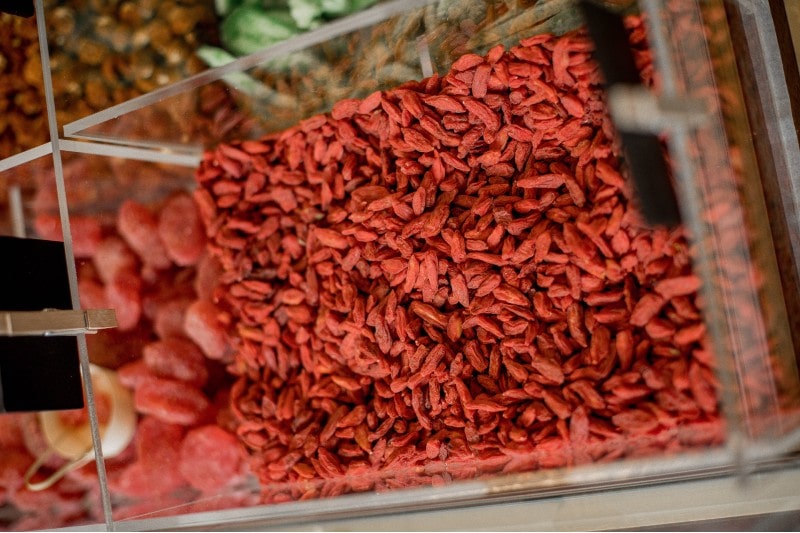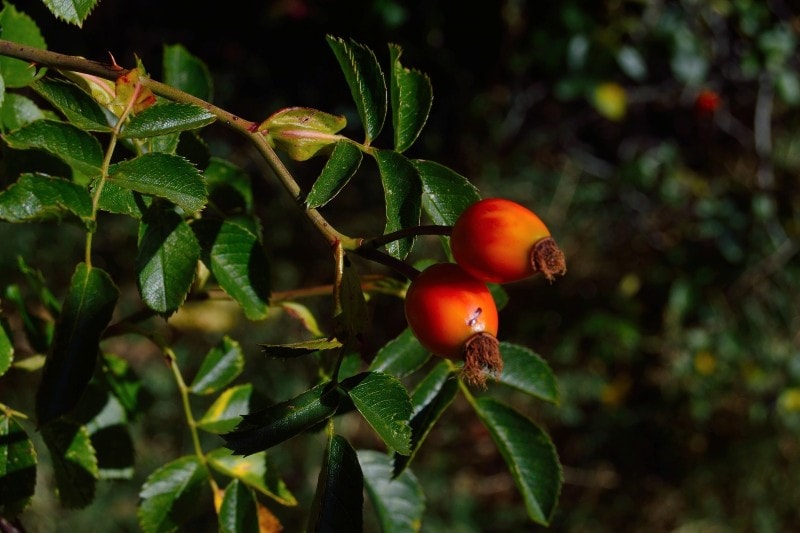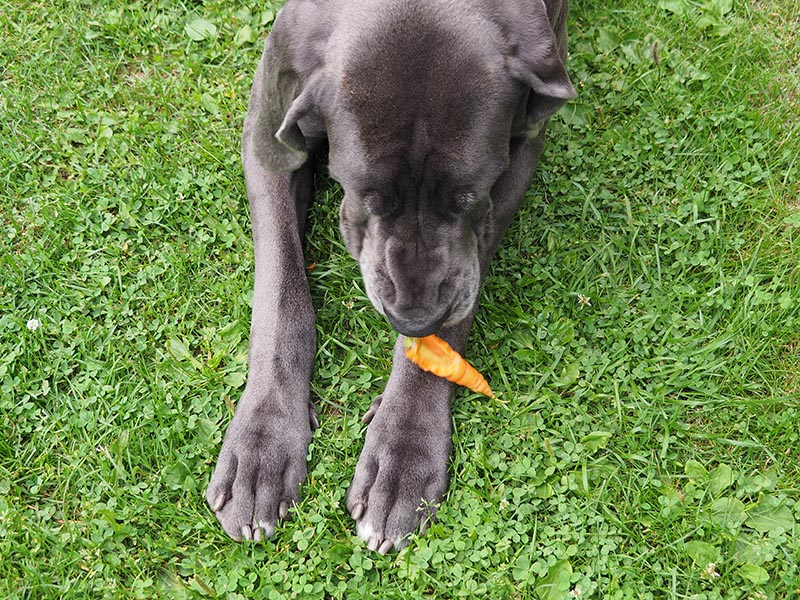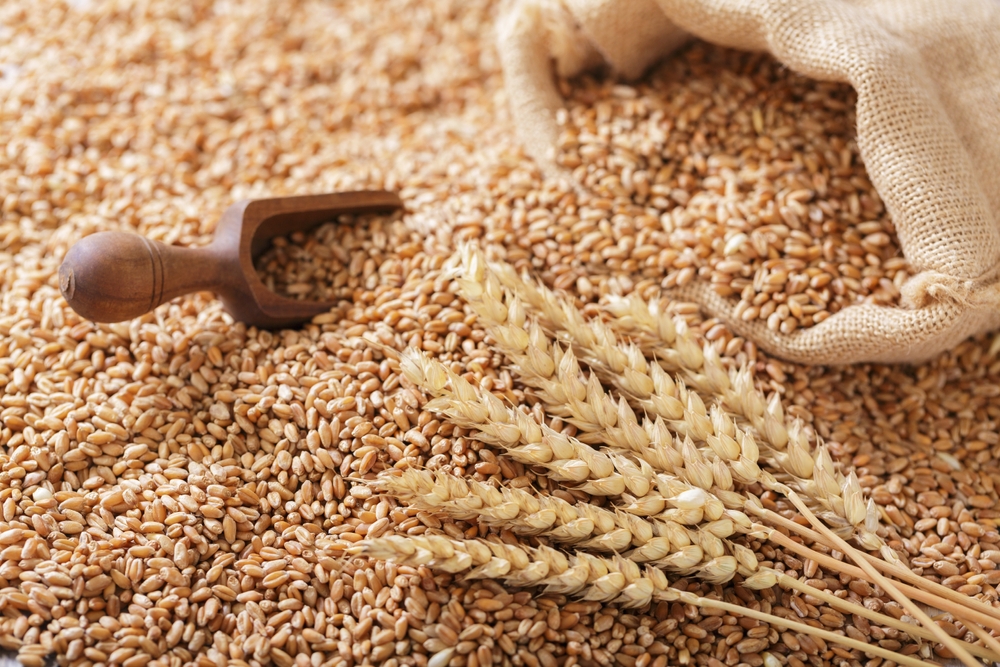If there’s one so-called superfood that’s made a big splash in the last few years, it’s goji berries. Known for their sour flavor and bright red color, goji berries are a popular addition to salads, smoothies, or a super snack right out of the bag. Goji berries are also known for their nutritive benefits and, in fact, have been used for centuries in traditional recuperation remedies. If you’re a dog parent, one question you might have about goji berries is whether your furry friend can eat them and whether these nutritious berries are safe for your pet. Goji berries are a safe snack for your dog, but like many fruits, they should be given to your pet in moderation.
The Health Benefits of Goji Berries for Your Dog?
The good news about goji berries as a canine snack is that they’re loaded with nutrients. You’ll find vitamins A, B, C, and E in these potent red berries, as well as beta-carotene. They also contain a decent amount of zinc, phosphorus, calcium, and a considerable quantity of fiber. Below, we’ve broken down some of the potential health benefits your dog will get from eating goji berries based on specific nutrients found in goji berries.

Selenium
As an antioxidant, selenium can slow down your dog’s aging process by reducing oxidation and can help a dog suffering from several conditions, including heart disease, IBS, skin problems, and even seizures.
Zinc
Zinc is excellent for improving your dog’s immunity and helping the body to replicate cells during the healing process.
Calcium
Calcium is a vital mineral that dogs need for strong bones and teeth as well as nerves and muscles. The calcium and vitamins in goji berries also can help prevent a condition called rickets that can make your dog’s bones soft and weak.
Iron
The iron in goji berries is vital for your dog’s overall health as it helps create new, healthy red blood cells. These cells allow your dog’s body to transport oxygen, preventing anemia and keeping them strong and full of energy.
How Many Goji Berries Can Your Dog Safely Eat?
Goji berries and other non-traditional snacks shouldn’t comprise more than 10% of your pup’s daily diet. For example, if your dog eats a pound of kibble a day, you can give them about 1.6 ounces of snacks (1 pound = 16 ounces x 10% = 1.6 ounces).
That’s a little less than two tablespoons of goji berries. Of course, a dog that eats 1 pound of kibble daily is usually a big dog, so smaller dogs and toy dogs should eat far fewer goji berries. Nutrition experts recommend that, if you’re not exactly sure, about eight goji berries served two or three times a week should suffice without going overboard.
How Should You Feed Goji Berries to Your Dog?
You can safely give fresh or dried goji berries to your dog. You should remove the goji berries from their stems if they’re still attached. Also, if they’re fresh, a good washing to remove any residue is a good idea, just like any fruit or vegetable.

Do Some Dogs Have an Allergy to Goji Berries?
The good news about goji berries is that they aren’t toxic to dogs. However, the occasional dog might have an allergy to goji berries. If yours does, you’ll notice a few signs after they eat a few berries, including the following:
- Hives
- Ear infections
- Swelling of their face
- Upset stomach
- Vomiting
- Itching and scratching more than usual
If you see your dog displaying any of the above signs, stop feeding them goji berries and contact your vet.
If you need to speak with a vet but can’t get to one, head over to PangoVet. It’s an online service where you can talk to a vet online and get the personalized advice you need for your pet — all at an affordable price!
Do Goji Berries Interact With Any Dog Medications?
While goji aren’t a problem for your dog, they could cause a problem if he or she takes various medications. For example, if your dog is on an antihypertensive for high blood pressure, the goji berries may further lower blood pressure. To be safe, if your dog is on any type of medication, check with your vet to be sure that feeding it goji berries is okay before you start.

Can Your Dog Eat Other Superfoods?
Goji berries are a superfood, one that is packed with vitamins, minerals, and other nutrients that are beneficial to a dog’s health. As such, feeding them goji occasionally is a good idea. But what about other superfoods? Below is a list of several superfoods your dog can eat safely and get their nutritional benefits.
Carrots

Many dogs love carrots because they’re tasty, crunchy, and fun to eat. Carrots are also packed with vitamins like C, an antioxidant, and K, which is great for fast healing.
Sweet Potatoes
Sweet potatoes are an excellent source of beta-carotene and have 150% more antioxidants than one of the top superfoods, blueberries. These tubers also have a lot of vitamin A to help your pup’s heart and immunity-boosting vitamin C.
Blueberries
Blueberries are a fantastic snack for your dog, thanks to their potent phytochemicals and fiber. You can feed your dog fresh blueberries, but many seem to like them better frozen.
Chia Seeds

The beauty of chia seeds is that they’re packed with nutrients, including essential omega-3 fatty acids, antioxidants, and protein, but they’re so small you can add them directly to your dog’s kibble. Sprinkle them on to effortlessly give your dog a superfood boost.
Yogurt
A healthy GI tract and gut are critical to your dog’s well-being and overall health. The active cultures found in high-quality yogurt give your pup’s gut something to cheer about, thanks to many essential nutrients like potassium, protein, iodine, and zinc.
Quinoa

Quinoa has all eight essential amino acids and plenty of fiber. It’s also one of the few grains in the world that can claim to be a complete protein with powerful antioxidants.
Which Berries Are Toxic for Dogs?
Some berries, like blueberries, strawberries, and cranberries, all make great dog snacks. However, there are quite a few berries that aren’t a good snack choice and can cause a toxic reaction if you feed them to your pup.
- Mistletoe berries
- Gooseberries
- Salmonberries
- Holly berries
- Baneberries
- Pokeberries
- Juniper berries
- Dogwood berries
Conclusion
Goji berries offer many nutritional benefits to dogs, but like all non-traditional snacks, they should be given following the 90/10 rule. Nutrition experts recommend no more than eight goji berries every few days for your dog, but larger dogs should be able to eat a few more with no problem. A few goji berries here and there, along with a nutritious kibble recipe, will help your favorite dog stay in excellent health.
Related Read:
Contents
- The Health Benefits of Goji Berries for Your Dog?
- How Many Goji Berries Can Your Dog Safely Eat?
- How Should You Feed Goji Berries to Your Dog?
- Do Some Dogs Have an Allergy to Goji Berries?
- Do Goji Berries Interact With Any Dog Medications?
- Can Your Dog Eat Other Superfoods?
- Which Berries Are Toxic for Dogs?
- Conclusion












